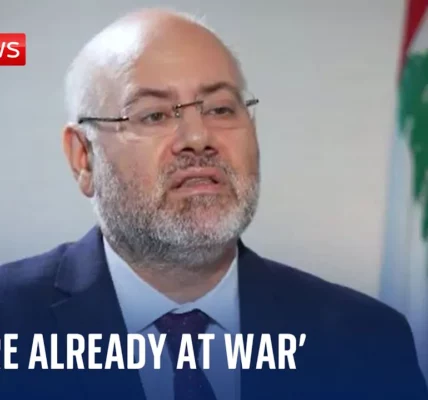Migration Headaches for Rishi Sunak: The Immigration Election

As the UK gears up for a pivotal general election, the political landscape is charged with discussions surrounding migration. This article delves into the campaign strategies of Rishi Sunak and Keir Starmer, highlighting the key issues at stake, particularly immigration, which has become a defining theme in this election cycle.
Introduction
The announcement of the general election has set the stage for a fierce political battle, with migration emerging as a central issue. Prime Minister Rishi Sunak faces mounting pressure regarding the government’s handling of immigration policies, particularly the much-debated flights to Rwanda. Meanwhile, the opposition, led by Keir Starmer, is seizing the opportunity to challenge the Conservative government’s track record. This article explores the current political climate, the strategies employed by both parties, and the implications for voters as the election date approaches.
Rishi Sunak’s Campaign and Migration Policy
Rishi Sunak’s campaign has been characterized by rapid movements across the UK as he seeks to connect with voters and regain momentum for the Conservative Party. Central to his campaign is the contentious Rwanda policy, which aims to deter illegal immigration.
Rwanda Flights and Election Timing
Sunak confirmed that flights to Rwanda would not commence before the election on July 4th, raising questions about the government’s commitment to addressing immigration issues. Key points include:
- Confirmation of no flights before the election.
- Record numbers of asylum seekers granted permission to stay in the UK.
- Concerns about the Conservative Party’s ability to deliver on its immigration promises.
Campaign Strategy and Public Engagement
Sunak’s strategy includes a “whistle-stop” tour of the UK, aiming to present himself as an energetic and relatable leader. His campaign events, however, have been noted for their controlled nature, limiting public interaction:
- Sunak’s focus on energy and determination to win back voters.
- Efforts to counteract negative perceptions and demonstrate leadership capabilities.
- Utilization of private jets funded by party donors, raising ethical concerns.
Keir Starmer and the Labour Party’s Response
In stark contrast, Keir Starmer has launched Labour’s campaign with a focus on criticizing Sunak’s handling of migration and other pressing issues. Starmer’s approach has been proactive, positioning Labour as a viable alternative to the Conservatives.
Campaign Launch and Key Messages
Starmer kicked off Labour’s campaign in Gillingham, Kent, emphasizing the need for change:
- Claims that Sunak called the election to avoid scrutiny of his Rwanda scheme.
- Targeting traditional Conservative seats to regain lost ground.
- Highlighting local issues affecting voters, including NHS access and cost of living concerns.
Public Perception and Engagement
Starmer’s public engagements have focused on connecting with voters on a personal level, contrasting with Sunak’s more controlled events. This strategy aims to resonate with constituents who feel disconnected from current political narratives.
Reform UK and the Immigration Debate
Reform UK, led by Richard Tice, has also entered the fray, focusing heavily on immigration as a core issue. Tice’s campaign highlights dissatisfaction with the current government’s policies:
Immigration as a Central Theme
Reform UK’s messaging underscores a commitment to reducing immigration and addressing public concerns about economic pressures:
- Critiques of the Conservative government’s immigration record.
- A push for strict immigration controls and a halt to mass immigration.
- Positioning as a voice for those feeling left behind by traditional parties.
Strategic Alliances and Campaign Dynamics
Although Nigel Farage will not stand as a candidate, his influence remains significant as he focuses on campaigning for Reform UK.
The Role of Digital Campaigning
As traditional campaigning unfolds, the digital landscape plays a crucial role in shaping voter perceptions and engagement. Both major parties are ramping up their online presence:
Social Media Strategies
Labour’s swift and polished digital campaign contrasts with the Conservative Party’s slower rollout, indicating differences in preparedness:
- Labour’s use of social media to communicate messages effectively.
- Conservative strategies lagging in engagement and response times.
- Increased spending on digital advertising compared to previous elections.
Impact on Voter Engagement
The effectiveness of digital campaigning can significantly influence voter turnout and opinions, making it an essential component of election strategy.
Conclusion
The upcoming general election represents a critical juncture for UK politics, with migration emerging as a pivotal issue for voters. Both Rishi Sunak and Keir Starmer have laid out contrasting visions for the future, and the effectiveness of their campaigns will ultimately determine their electoral success. As the campaign progresses, it will be essential for voters to engage with the policies presented and consider how these impact their communities. Stay informed and make your voice heard on July 4th!
For more insights on the election and related topics, check out our articles on Labour’s Campaign Strategies and The Role of Digital Campaigning in Elections.
“`




